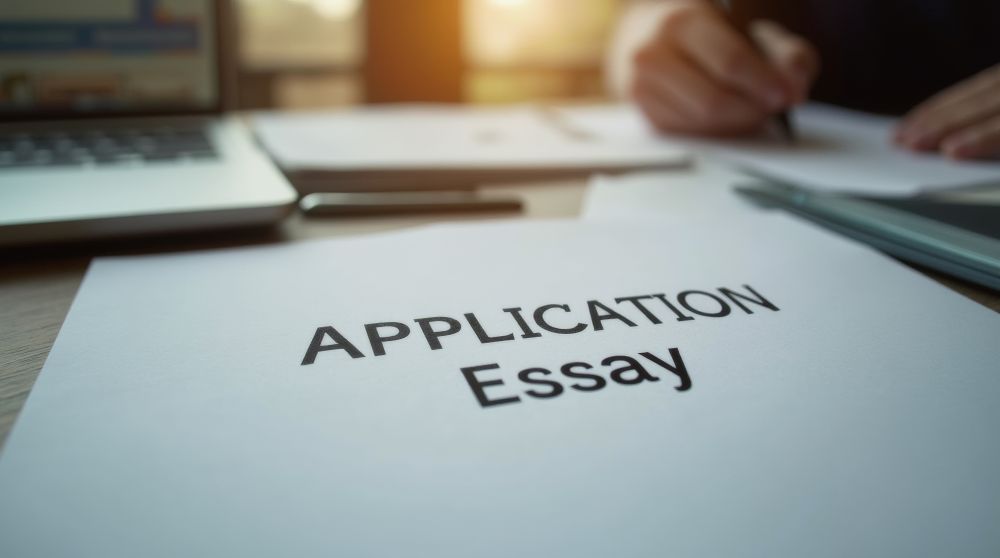In recent years, artificial intelligence has reshaped how students approach writing. Tools like ChatGPT, Grammarly, and other AI assistants can produce clear, grammatically correct text within seconds. For students preparing their college application essays, this can be tempting. After all, writing about personal growth, identity, or resilience is not an easy task, and AI offers a quick shortcut.
As more students experiment with AI during the application process, however, U.S. universities have begun to pay closer attention. The critical question is: Can admissions officers actually tell the difference? According to new research from Cornell University, the answer is yes, and schools are already adjusting their policies to address it.
1. What the Cornell Study Found
Cornell University’s Faculty of Computing and Information Science conducted one of the first large-scale studies to measure the difference between essays generated by AI and essays written by people. Cornell researchers collected more than 30,000 authentic essays written before ChatGPT’s existence and compared them with essays produced by eight major AI models, including ChatGPT and Gemini.
The differences were striking. According to the data gathered, AI-written essays tended to:
- Use similar structures and vocabulary, resulting in a generic and overly polished tone;
- Lack emotional depth or genuine reflection, even when personal details were included in the prompt; and
- Focus on surface-level storytelling instead of showing the writer’s self-awareness or growth.
Cornell’s team found that even advanced AI could not mimic the complexity of human storytelling and voice. True personal writing includes uncertainty, small imperfections, and emotional shifts that AI cannot replicate. Based on these linguistic patterns, the researchers built an algorithm that detected AI-generated essays with near perfect accuracy.
Professor René Kizilcec, who led the research, explained that AI can support certain stages of the writing process but should not replace it entirely. According to him, students who rely too heavily on AI risk losing their voice and authenticity. He said: “The most memorable essays are those that reveal honest moments and human emotion, not just perfect grammar.”
2. How Universities Are Responding
Following the rise of AI-assisted writing, several universities have updated their application guidelines to clarify what is considered acceptable. Although policies vary, most schools agree on one principle: AI should support writing, not create it.
Below are some examples of how leading universities address the use of AI in applications:
Common App
Under its integrity policy, the Common App treats AI-generated content presented as original work as a form of fraud. Because most U.S. universities use this platform to streamline college applications, the rule applies across many institutions.
Brown University
Brown’s policy states that applicants must not use AI to create the content of any application materials. Basic tools for grammar or spelling are acceptable, but all essays and short answers must be original and written by the applicant.
Georgetown University
Georgetown requires applicants to sign an integrity statement explicitly stating that AI was not used in any part of the application, including essays. The university reserves the right to rescind admission or dismiss students if any misrepresentation is found.
Cornell University
Cornell encourages ethical AI use for brainstorming, researching university information, or proofreading. However, using AI to outline, draft, or write essays and translate or generate portfolio content is considered unethical.
California Institute of Technology (Caltech)
Caltech introduced their own detailed “AI Ethical Use Guidelines” that outlines what is permitted and what is prohibited. Copy-pasting AI-generated text, or allowing AI to outline and draft essays, is strictly forbidden. Limited use for research or grammar improvement, however, is acceptable.
Vanderbilt University
Vanderbilt allows minimal AI support for editing but insists that the essay must reflect the applicant’s true voice and ideas. The university stresses that the student’s authenticity and introspection are more valuable than polished phrasing and advanced vocabulary.
Emory University
Emory’s guidelines focus on the student’s self-expression. The school allows AI tools for idea organization or proofreading, but all creative writing must come directly from the applicant.
University of Virginia (UVA)
UVA permits AI for brainstorming and minor proofreading only. Students are required to confirm that all submitted materials represent their original work.
The examples given above are reflective of a larger shift in college admission processes. Admissions offices are not just focused on what AI can produce; they are more concerned about how using AI may obscure, perhaps even completely erase, the applicant’s individuality. The personal essay has always been one of the few opportunities for students to communicate their unique personalities and voices, and universities are determined to protect that space.
3. How Colleges Detect AI Writing
Many students assume that if a university does not explicitly mention AI detection, they do not use it. In reality, most colleges have discreet but effective systems for identifying irregularities in writing style.
Detection can happen in several ways:
1. Language analysis software compares sentence rhythm, vocabulary range, and structural consistency against human writing patterns. AI text often displays predictable word choices and uniform sentence lengths all throughout the work.
2. Cross-checking writing samples helps identify inconsistencies between an application essay and other written materials, such as short answers, email correspondences, or supplemental writing.
3. Interviews or spontaneous writing prompts may be used when an essay feels too polished or inconsistent with the student’s academic performance or other written materials.
Even when technology is not used, seasoned admissions officers are remarkably skilled at identifying when an essay feels “off.” An essay that reads perfectly but lacks emotion or vulnerability often signals artificial assistance.
Because policies are constantly evolving, students should always verify the most recent AI guidelines on each school’s official website. Ivy Talent Education also advises students to keep early drafts, brainstorming notes, and revision logs as proof of their authentic writing process.

4. Responsible and Ethical Use of AI
AI is not entirely prohibited in college application processes. When used carefully and responsibly, it can be a productive tool for organization, clarity, and learning. The key lies in transparency and moderation.
Recommended low risk uses include the following:
- Brainstorming possible topics or reflection questions.
- Getting feedback on grammar, syntax, and clarity through tools like Grammarly.
- Researching school programs and essay prompts, then verifying all information on their official websites.
- Using AI to rephrase unclear sentences for smoother readability, while keeping the ideas your own.
High risk and unethical uses include:
- Generating entire essays or large sections of content.
- Rewriting your essay using AI paraphrasers that distort your original style.
- Translating essays entirely through AI tools without personal editing or adaptation.
Students who want to use AI responsibly can view it as a writing coach rather than a ghostwriter. It can help you refine your work, but it should never define your ideas.
5. Why Authentic Essays Still Matter
The college essay is not meant to be a flawless piece of writing. It is a chance for admissions readers to understand your motivations, challenges, and personality. What stands out most in successful essays are the small details that reveal who you are as a person, may they be moments of uncertainty, humor, failure, or growth. These human qualities cannot be replicated by artificial intelligence.
In the long run, authenticity is not just a policy requirement; it is an advantage. Real stories that resonate emotionally demonstrate genuine reflection and maturity. Admissions officers read thousands of essays every year, and they remember the ones that feel honest.
6. Final Thoughts
The purpose of a U.S. college application essay is not to showcase perfect grammar or advanced vocabulary. The college application essay reveals who you are as a person, how you think, and how you have grown.
AI can polish your writing, but it cannot replace your story or your voice. The most compelling essays are those filled with personal anecdotes, warmth, and sincerity, qualities that an algorithm can never replicate.
If you would like professional guidance on writing essays, understanding AI-related risks, or developing a comprehensive U.S. college application plan, Ivy Talent Education’s consulting team offers personalized support for every step of your journey. Contact us today to learn how we can help you craft an authentic and powerful application.
 中文
中文 Tiếng Việt
Tiếng Việt




